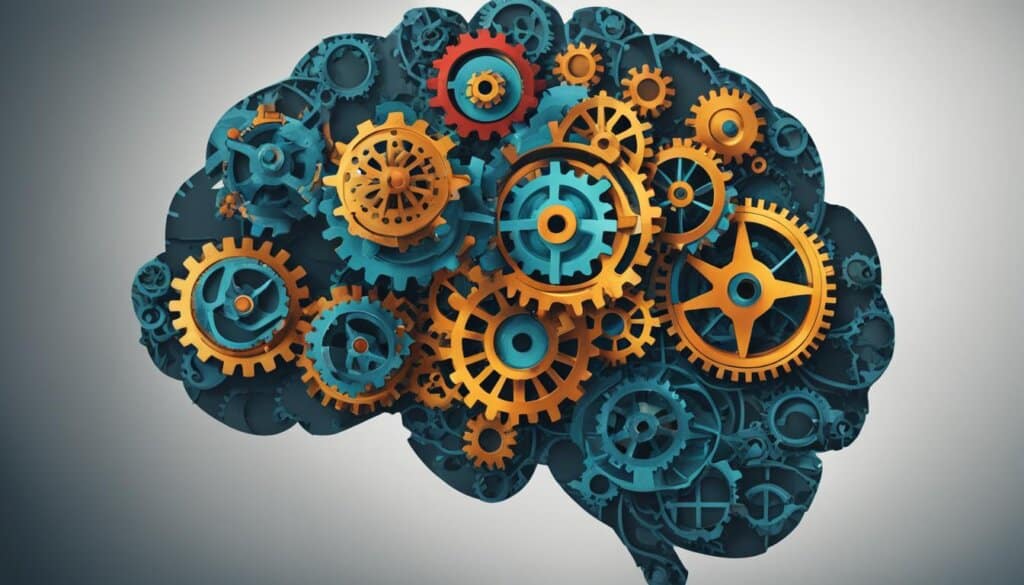Table of Contents
Human resource management (HRM) is the practice of recruiting, hiring, deploying, and managing employees in an organization. It is often referred to simply as human resources (HR). The HR department is responsible for creating and implementing policies related to employees and their relationship with the organization. HRM is crucial for achieving the organization’s mission, improving employee performance, and maintaining a competitive edge in the job market.
The objectives of HRM include societal, organizational, functional, and personal goals. HR managers have various responsibilities, such as employee recruitment, training and professional development, compensation management, and ensuring compliance with legal requirements.
HRM is essential for managing employees as valuable assets of a business. Employees, also known as human capital, contribute to the success of the organization. Effective HRM practices help in recruiting skilled employees who align with the company’s goals and promote a positive corporate culture. HR managers also monitor the job market to ensure competitive compensation and benefits, prevent burnout, and adapt job roles according to market trends. HRM permeates every aspect of an organization, from recruitment to data management.
Objectives of HRM
HRM has four main objectives: societal, organizational, functional, and personal. Societal objectives focus on ethical and social needs, such as equal opportunity and fair pay. Organizational objectives aim to ensure efficiency, including proper training, right staffing levels, and high employee retention rates. Functional objectives ensure effective HR operations and resource allocation. Personal objectives support individual employee goals through education, career development, and maintaining employee satisfaction. HRM plays a crucial role in achieving these objectives and driving the mission of the organization.
Skills and Responsibilities of an HR Manager
HR managers require various skills and responsibilities in handling HRM functions. Effective communication, both verbal and written, is crucial for HR professionals. They need to excel in recruitment and talent acquisition, employee relations, compliance with legal requirements, conflict management, performance management, strategic thinking, analytics, adaptability, and ethics. HR managers play a key role in the success of HRM strategies and ensuring a positive employee experience. They must possess the ability to handle changing workplace dynamics and maintain confidentiality and ethical standards. HRM software also plays a significant role in automating HR processes and analytics.
The Importance of Human Resource Management
Human resource management (HRM) plays a critical role in managing employees, who are valuable assets of any business. Often referred to as human capital, employees contribute to the success and growth of an organization in various ways.
One of the primary goals of HRM is to recruit and retain skilled individuals who align with the company’s vision and goals. By implementing effective HRM practices, businesses can ensure they attract and select the right candidates for job roles. This strategic approach to employee management strengthens the foundation of the organization and allows for the development of a talented workforce.
Moreover, HRM is instrumental in promoting a positive corporate culture. HR departments work towards fostering a work environment that encourages collaboration, innovation, and employee engagement. By prioritizing employee satisfaction, HRM helps create a workplace where individuals can thrive, leading to increased productivity and overall organizational success.
HR managers also keep a close eye on the job market to ensure competitive compensation and benefits for employees. They adapt job roles according to market trends, preventing burnout and creating opportunities for growth and career development. HR strategies that focus on market dynamics contribute to attracting, motivating, and retaining top talent in a highly competitive job market.
It is important to note that HRM permeates every aspect of an organization. From recruitment and onboarding to performance management and data analysis, HRM strategies are vital for aligning employee objectives with organizational goals. Successful HRM practices create a nurturing work environment that fosters employee well-being, maximizes potential, and drives business growth.
Welcome to section 2 of our article. In this section, we will explore the importance of human resource management, focusing on key aspects such as employee management, corporate culture, job market considerations, and HR strategies. Let’s dive in!
Objectives of Human Resource Management
Human resource management (HRM) aims to achieve several key objectives: societal, organizational, functional, and personal. Each objective plays a crucial role in the overall success of HRM and contributes to the mission of the organization.
Societal Objectives
Societal objectives focus on addressing ethical and social needs within the organization. These objectives strive for equal opportunity, fair pay, diversity, and inclusion. By prioritizing societal objectives, HRM aims to create an ethical and inclusive work environment that reflects the values of the organization and the wider society.
Organizational Objectives
Organizational objectives are centered around ensuring efficiency and effectiveness within the company. HRM works towards achieving these objectives by implementing proper training and development programs, maintaining optimal staffing levels, and promoting high employee retention rates. These objectives contribute to the overall productivity and success of the organization.
Functional Objectives
Functional objectives focus on optimizing HR operations and resource allocation. HRM aims to streamline processes, improve HR systems, and allocate resources effectively to support the organization’s goals. By achieving functional objectives, HRM enhances the overall efficiency and effectiveness of the HR department.
Personal Objectives
Personal objectives reflect the support and development of individual employees. HRM provides opportunities for education, training, and career development, allowing employees to reach their full potential and achieve personal growth. By catering to personal objectives, HRM contributes to employee satisfaction and retention.
Overall, HRM plays a pivotal role in achieving these objectives, aligning them with the organization’s goals, and ensuring the success of the HR department. With a focus on societal, organizational, functional, and personal aspects, HRM enables the organization to excel in today’s competitive business landscape.

Skills and Responsibilities of an HR Manager
HR managers play a vital role in the success of an organization’s human resource management (HRM) strategies and ensuring a positive employee experience. They possess a wide range of skills and have various responsibilities in handling HRM functions.
Effective communication, both verbal and written, is paramount for HR professionals. They must excel in recruitment and talent acquisition, ensuring that the organization attracts and hires the right individuals who align with its values and goals. Building and maintaining strong employee relations is another crucial aspect of an HR manager’s responsibilities, fostering a positive work environment and addressing any concerns or conflicts that may arise.
Compliance with legal requirements is imperative, as HR managers must ensure that the organization adheres to labour laws and regulations in areas such as hiring, compensation, and employee benefits. They also play a significant role in conflict management, acting as mediators and facilitators in resolving workplace disputes.
Additionally, HR managers are responsible for performance management, which involves evaluating and enhancing employee performance through goal setting, regular feedback, and performance reviews. Strategic thinking and analytics skills are essential as they contribute to the development and implementation of HRM strategies that align with the organization’s overall objectives. Adaptability is crucial in handling changing workplace dynamics and staying ahead in the ever-evolving business landscape.
Moreover, HR managers must uphold the highest ethical standards, maintaining confidentiality and ensuring fairness and integrity throughout all HR processes. The use of HRM software also plays a significant role in streamlining HR operations, automating administrative tasks, and providing valuable analytics to inform decision-making.
FAQ
What is Human Resource Management (HRM)?
Human Resource Management is the practice of recruiting, hiring, deploying, and managing employees in an organization. It is often referred to as HR and is responsible for creating and implementing policies related to employees and their relationship with the organization.
Why is HRM important?
HRM is essential for managing employees as valuable assets of a business. It helps in recruiting skilled employees who align with the company’s goals, promoting a positive corporate culture, monitoring the job market for competitive compensation and benefits, and ensuring compliance with legal requirements.
What are the objectives of HRM?
The objectives of HRM include societal objectives (equal opportunity and fair pay), organizational objectives (efficiency and high employee retention rates), functional objectives (effective HR operations and resource allocation), and personal objectives (education, career development, and employee satisfaction).
What skills and responsibilities do HR managers have?
HR managers require skills in effective communication, recruitment and talent acquisition, employee relations, compliance with legal requirements, conflict management, performance management, strategic thinking, analytics, adaptability, and ethics. They play a crucial role in the success of HRM strategies and ensuring a positive employee experience.













